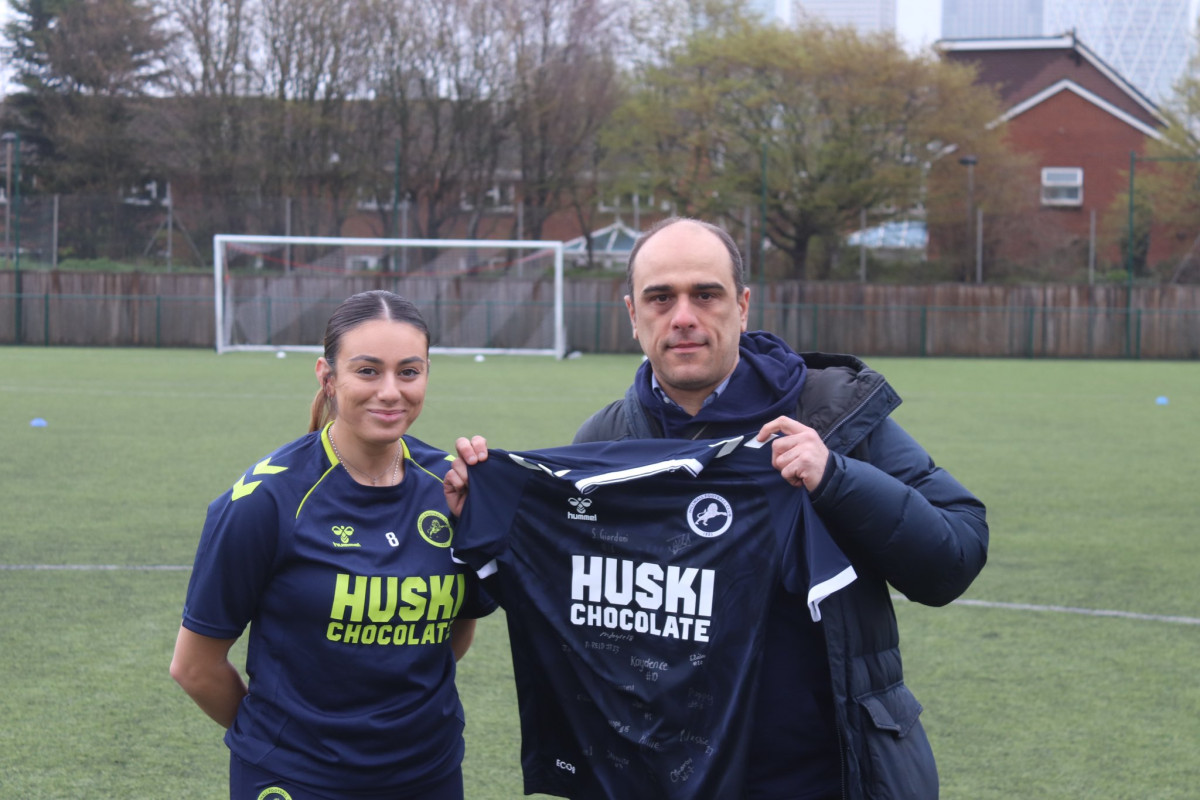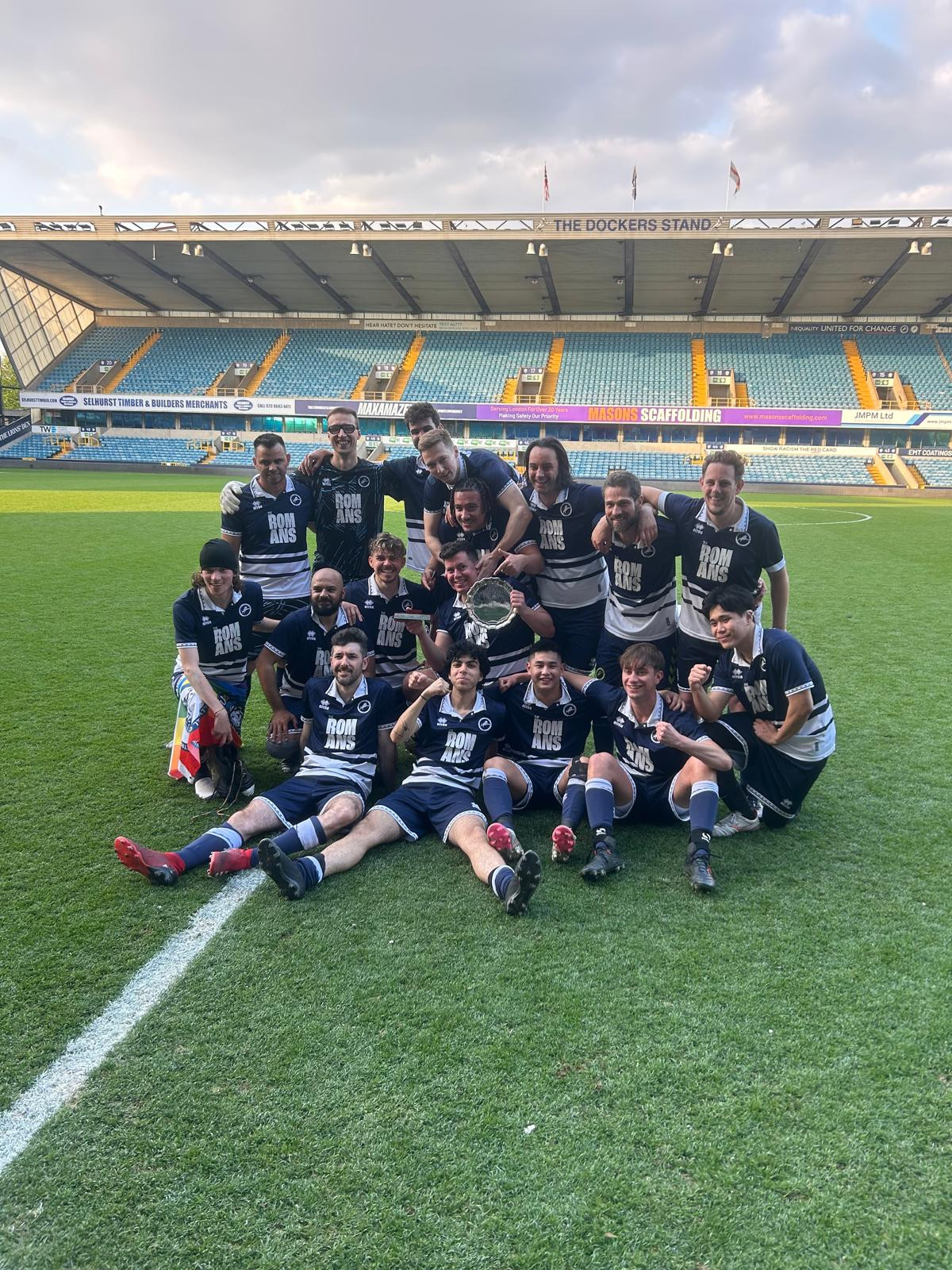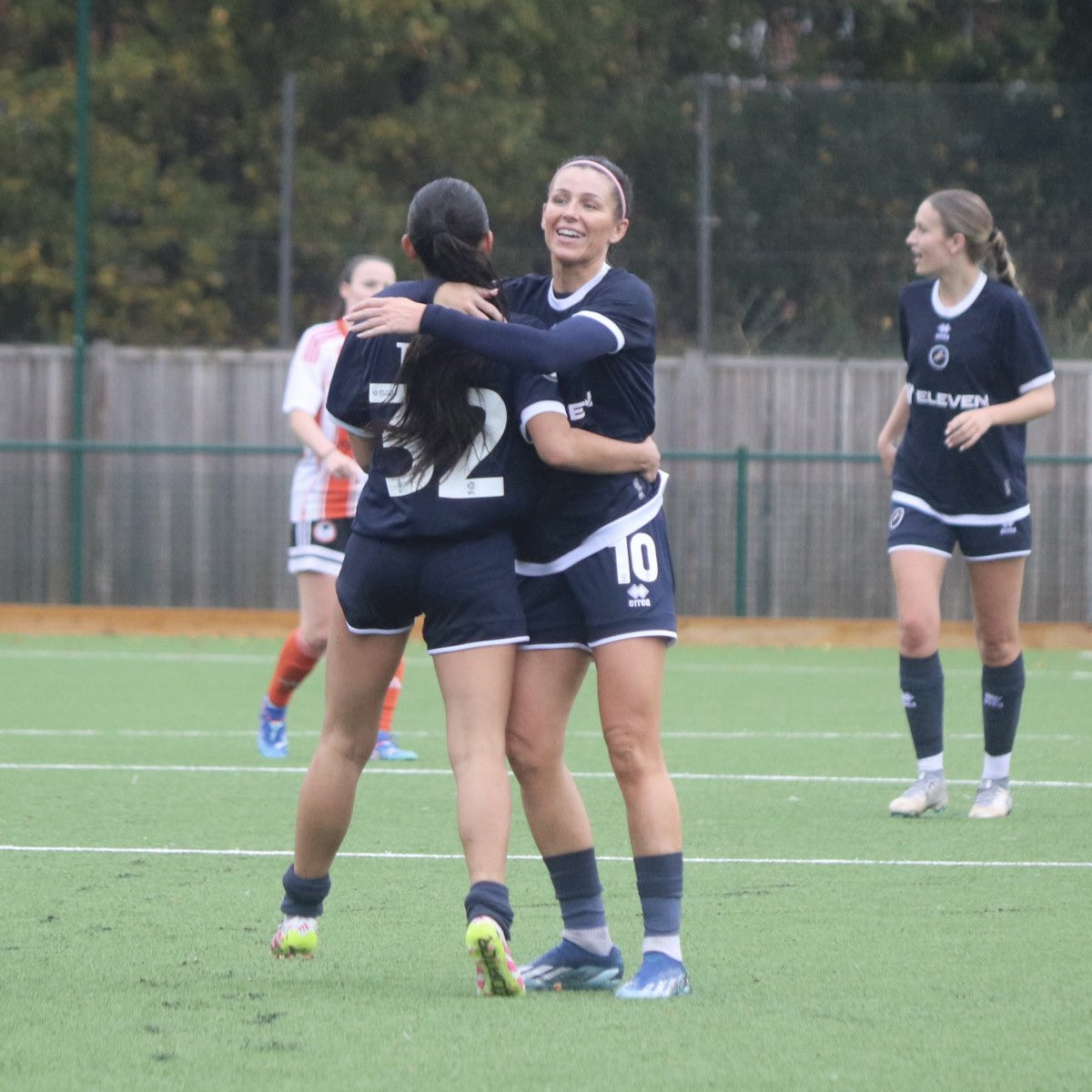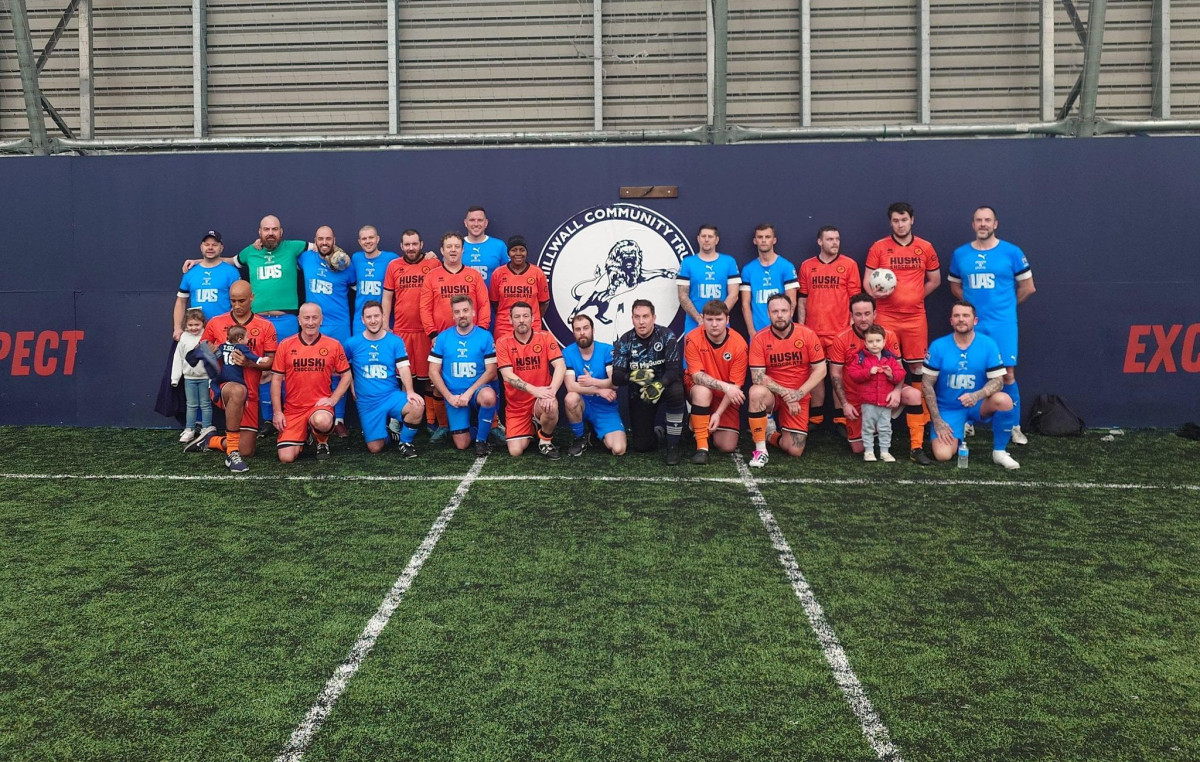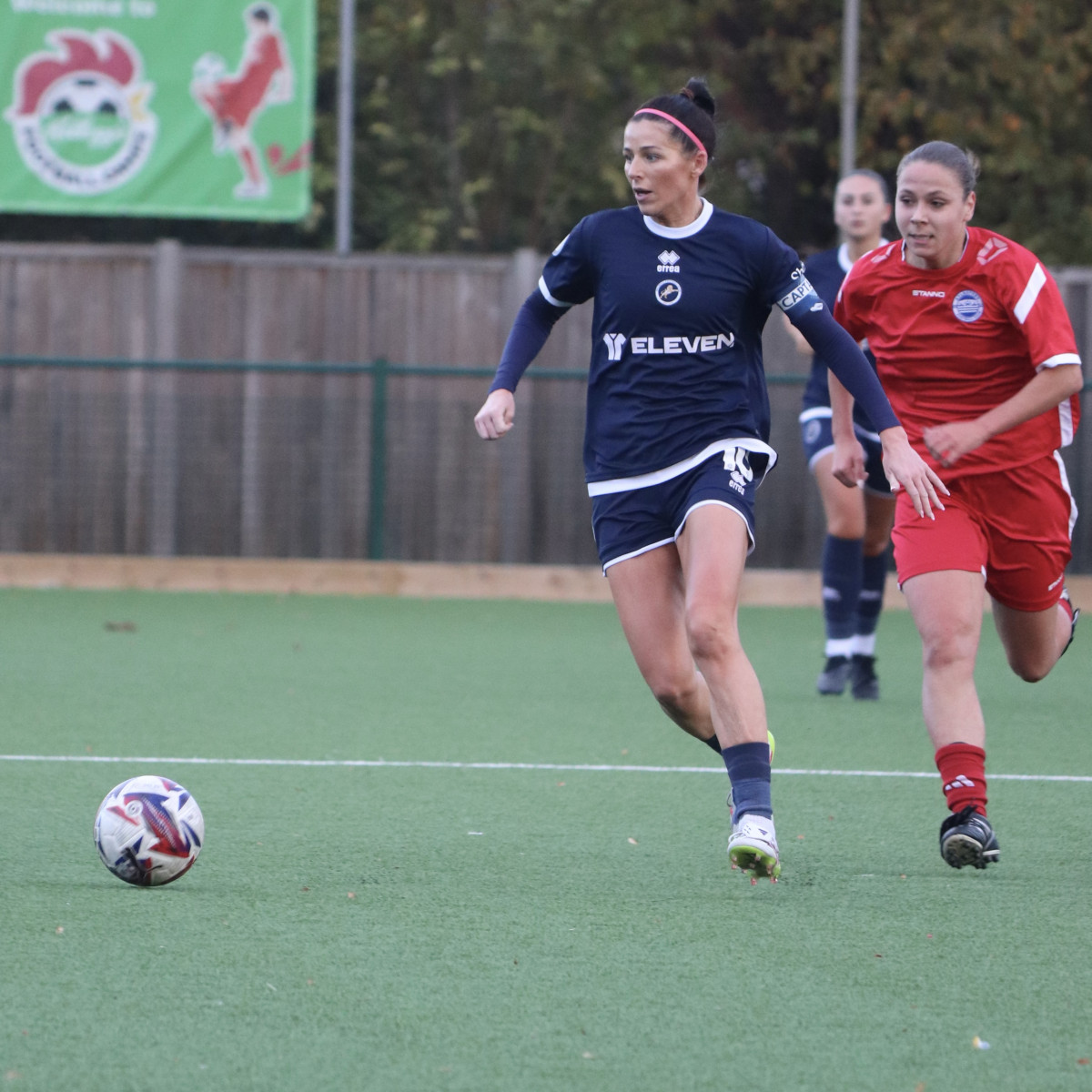Thanks to the invitation of our friend and reader, the lawyer Gianluca Sardi, we had the pleasure to take part in a podcast organized by Eamonn Barclay (soul of Millwall Community Trust and speaker of a podcast channel dedicated to Millwall) who introduced us to an English girl of Italian origins, who plays for Millwall women's team this year: Stefania Paci.
Stefania Paci is a girl from Essex. Her parents are originally from southern Italy. She started playing football with West Ham Academy and after wearing T-shirts of Crystal Palace, Hashtag FC, Stevenage and London Bees, from this season she’s been playing in the ranks of Millwall women's team.
After a brief introduction by Eamonn, Gianluca, who is also the girl's sponsor through his law firm, spoke to us about the importance of a charity called Il Circolo, which organizes both charitable initiatives to finance students involved in research and initiatives that aim at disseminating Italian culture. We then asked Stefania about her football career and above all about her opinion on the growth and current popularity of women's football in England.
During the broadcast, Stefania was asked the following questions:
1) Introduce yourself and tell us what you think of this choice to play for Millwall?
My name is Stefania Paci and I started playing football when I was 12. My skills were noticed by West Ham talent scouts and thanks to them I started playing in their Academy. Last year I’ve been divided between the ranks of London Bees and Stevenage and I decided to accept Millwall's offer because I consider them a team with an ambitious project and at the same time I consider it an important step for my professional growth. I think it's the right team to play in, but unfortunately during the season I’ve had an injury which prevented me from showing my skills, but I'm working hard to fully recover, with the hope of being able to come back for the season’s final.
2) What do you think are the differences between women's football in England and women's football in Italy?
Having lived all my life in England I know more about English women's football, and I have to say that it has been growing very fast in recent years. All this thanks also to the victory of the Lionesses in the last European Championships. which has been very important for the growth of English women's football and above all for its media exposure, which is increasing day by day. I also follow the Italian women's national team and I have to say that Italy really needs a revolution in its women's football movement in order to be on par with the English women's football movement.
3) How do you feel about your Italian origins? Do you think that the fact that you play for Millwall may encourage kids from the Italian community living in London to come to St. Paul's field to follow Millwall women's team?
To be honest, that's what I hope will happen, but I'd be happy that a lot of "local" people could also come and watch our games and support the team. When my name and surname are noticed, which at first glance is not exactly English, I am asked where I am originally from. I am very proud of my Italian origins despite being born in London, and I must also say that I was brought up with the typical principles and values of southern Italian families, because my father is Sicilian and my mother is from Salerno province.
4) What are your ambitions Stefania?
I want to play football at the highest possible level, and regarding Millwall, which has a very competitive squad, I can say that we can easily aim at promotion and I want to contribute to the achievement of this objective with all my strengths and skills.
5) What do you think of Alessia Russo, another girl born in England with Italian origins?
I think Alessia is a great player, who is making a high-level football career. Alessia is a typical example of what we’ve just mentioned regarding the English women's football movement, which is very advanced in its growth, with the Premier League teams investing part of their capital in financing the corresponding women's teams, making the league very competitive and at high levels, starting also from the youth sectors. The victory of the last European championship was a demonstration of these investments.
We thank Eamonn and Gianluca for involving us and Stef for answering our questions, with the hope of being able to obtain great satisfaction with Millwall.
Alberto Zingales
